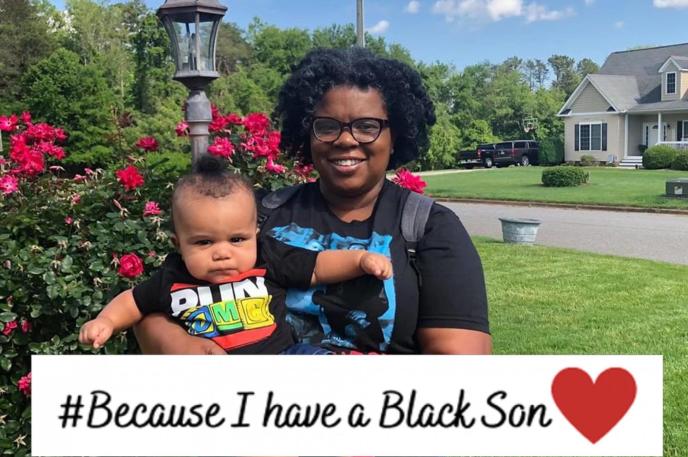
Because I Have a Black Son
October 27, 2020
Bringing home a new baby is a time filled with a of myriad emotions: joy, excitement, anxiety, fear. Taking classes, reading books and listening to advice-both unsolicited and solicited-can never fully prepare a new parent for every possible situation that may arise. And there is nothing, no book, no person, or no oracle that can prepare a parent of a Black son for how it feels the first time you hear the news about a Black man falling victim to the ills of our society because he “fit the description,” was “in the wrong place at the wrong time,” or simply because he was perceived as a threat.
On February 23, 2020, I remember clutching my then three-and-a-half-month-old son in my arms upon hearing about the shooting death of 25-year-old Ahmaud Arbery. I had seen and read about so many others around the country and even in our city, but this time it hit differently. This time, as the mother, I wept for the future of my Black son. Three months later, on May 25, 2020, I would weep again for George Floyd, the 47-year-old Black man who called out for his mama, his dead mama, as he lay dying in a Minneapolis street.
As a children’s librarian, I have always valued diversity in children’s books and children’s library programming. I believe children’s books can serve as both windows and mirrors. They can provide a glimpse into situations that may be new and different for some while reflecting others’ lived experiences. Picture books can be valuable tools that help start difficult conversations, and they can affirm and uplift.
As a mother, who happens to be a children's librarian, I take early literacy seriously. Even though my son is only 10 months old, we make time each week for Active Reading. We regularly read books that reflect who he is and who he will become. By asking questions, building vocabulary and making connections, I am not only setting a strong foundation for literacy development, I am also validating the qualities that make him special and unique, despite what the outside world may think. I don’t stop there though; then, I read books where the children characters are not like him: they have different abilities and their families do not look like ours. Then I validate their special and unique qualities, too.
We still have a few years before my son is ready for the talk, and I do not mean the birds and the bees. I’m talking about the talk that many Black parents give their children, especially their sons, about what to do if the police pull them over. The talk in which we will discuss why he is not allowed to wear hoodies in public and why it is never ok to play with toy guns. The talk in which we plan and execute how to return home safely each day. But until then, we will keep reading the stories that celebrate him and Black boys like him. And I will encourage others to do the same so that as he and other Black boys become men, society will remember that they, too, are someone’s sons.
This blog was written by Alesha Lackey, a children's librarian at Allegra Westbrooks Regional Library.
